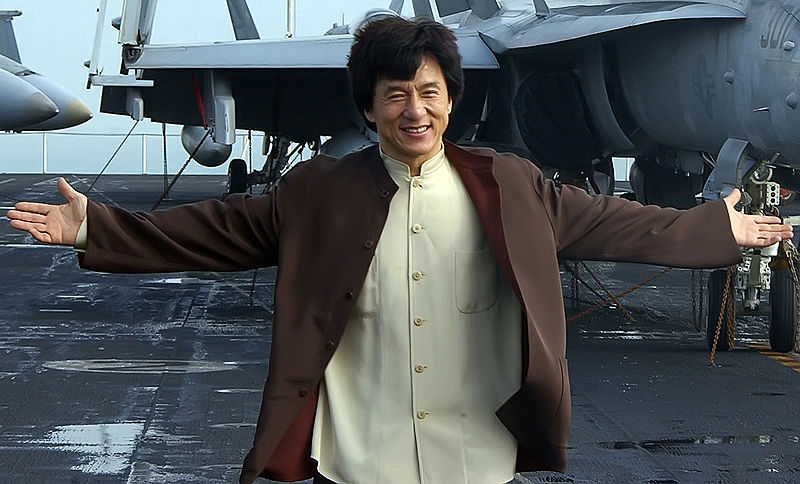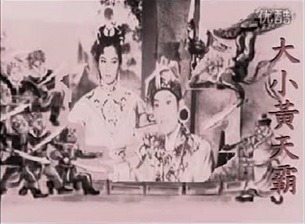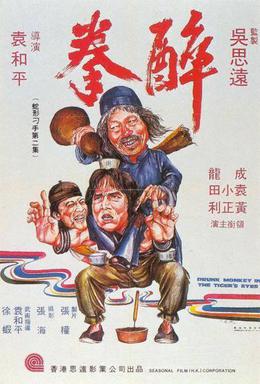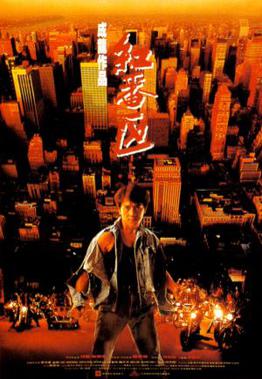Backed up by his perilous, impressive martial arts, death-defying acrobatic stunts, and unique, endearing humor and antics, Jackie Chan emerged to be an international action star who brought Kung Fu movies to the world. Yet, his popularity didn’t happen overnight as he devoted lots of hard work, displayed immense persistence, and endured many injuries before becoming one of martial arts cinema’s most renowned personalities. Here, let’s discover about his start, his journey in the industry, and how Jackie Chan became Jackie Chan.
Early Life
Jackie Chan (Chan Kong-sang) was born on the 7th of April 1954, in Hong Kong, China. He was the son of two impoverished Civil War refugees, Charles and Lee-Lee Chan. While the family lived in the prestigious Victoria Peak district, their life was far from being affluent, only living in a servant’s quarter as his parents worked for the French Consul to Hong Kong.
Nicknamed “Pao-pao” the young Chan was frisky, energetic, and always on the move, perfectly fitting his nickname that translates to “Cannonball.” To maximize Chan’s incredible vigor, his father taught and practiced Kung Fu with him, making him learn the value of hard work, strength, patience, perseverance, and respect at a young age.
In early 1960, the family moved to Canberra, Australia to find new jobs. While Chan has displayed immense potential with his fighting skills, the six-year-old Chan was not successful academically. Being dyslexic, a condition that wasn’t addressed yet back in the day, caused him to be the lowest student in the class ranking.
After failing his first year, his father sent him back to Hong Kong and enrolled him in China Drama Academy, a rigorous Peking Opera boarding school. For the next decade, Chan studies martial arts, singing, drama, mime, acrobatics, all while under strict discipline, which includes receiving punishment for dismal performances. It all paid off as at the age of eight, Chan debuted in the martial arts movie “Big and Little Wong Tin Bar.” Afterward, he landed small roles in several flicks.
In 1971, Chan graduated and found work as a movie stuntman and as an acrobat. He landed roles in two movies made by then-rising superstar Bruce Lee, “Fist of Fury (1972)” and “Enter the Dragon (1973)”. Under the screen name, his high, lionhearted jumps and falls turned many heads and gained respectful attention from industry and more importantly, Lee, himself.
The Big Break
In search of a successor to the late Bruce Lee who met a tragic, unexpected death in 1973, film producer Lo Wei cast Chan in a series of Kung Fu films. Though they tried to bank on Lee’s success by using “dragon,” “fist,” or “fury” in the title, only a few of the movies fared reasonably well, while most of them were unsuccessful. Thus, their collaboration ended in the late 1970s.
It was at this time when Chan contemplated that he didn’t want to remain under the shadow of Bruce Lee, and rather he wanted to create his own image. Using his fearlessness he stood up to perform all his stunts. Taking inspiration from his childhood role models, Buster Keaton and Charlie Chaplin, he incorporated comedy into the serious world of martial arts. Turning action-packed scenes into hilarious ones, he introduced the new genre of “Kung Fung Comedy,” the perfect formula to transform him into a star.
His first successful films were “Snake in the Eagle’s Shadow” (1978) and the iconic “Drunken Master” (1978). In the former, he was reported to have lost a tooth, while almost going blind in the latter. These films were followed by “The Fearless Hyena” (1979), a film which he wrote, directed, and in which he starred. The following year, he added two more hits, “Half a Loaf of Kung Fu” and “The Young Master,” which cemented his status as a movie star in Hong Kong and throughout Asia.
Venturing Into Hollywood
Chan tried to foray into Hollywood in the early 1980s, with the movie “The Big Brawl” produced by Golden Harvest, the Hong Kong film conglomerate. Yet, the film flopped in the U.S. He then appeared in Burt Reynolds’ action comedy film “The Cannonball Run” (1981) and its sequel, “The Cannonball Run II” (1984).
Back in Hong Kong, Chan continued to receive massive success from the films “Project A,” “Police Story,” and “Armor of God,” released consecutively from 1983 to 1986. He continued to do his perilous stunts, but not without damage. He nearly met his demise in “Armor of God” after falling, fracturing his skull, and impairing his hearing.
Amidst the injuries, these three films received huge financial and critical success and defined his career in Hong Kong. It’s no surprise that these films had their sequels.
“Police Story” even had four installments, with some even considering the later movies superior, perhaps an exception to popular opinion that sequels aren’t as good as the original. Yet, these weren’t still enough to catapult Chan’s popularity in the West.
Hollywood Breakthrough
In 1995, Chan finally scored his first hit in the United States with the “Rumble in the Bronx.” Though his next two releases were less successful, he got another box-office hit partnering with comedian Chris Tucker in “Rush Hour” (1998). The buddy action comedy film enjoyed great successes, resulting in the launch of its sequels in 2001 and 2007.
Since then, Jackie Chan continued to make notable releases that delighted the U.S. audience, such as “Shanghai Noon (2000)” with Lucy Liu and Owen Wilson, and “The Tuxedo” (2002) with Jennifer Love Hewitt, and “The Forbidden Kingdom” (2008) with Jet Li. In 2010, he appeared in “The Spy Next Door” and the remake of “The Karate Kid.” Other notable films he made during the decade include “Shanghai Knights” (2003), “The Medallion” (2003) “Around the World in 80 Days” (2004).
In 2012, “Chinese Zodiac” perhaps served as his last stint doing the directorial and action-comedy lead role, but he is ceaseless in exploring new realms, proved by his dramatic outing in the 2017’s “The Foreigner.” In 2016, Chan received an Honorary Award for this extraordinary contribution and lifetime achievements in the film industry.




